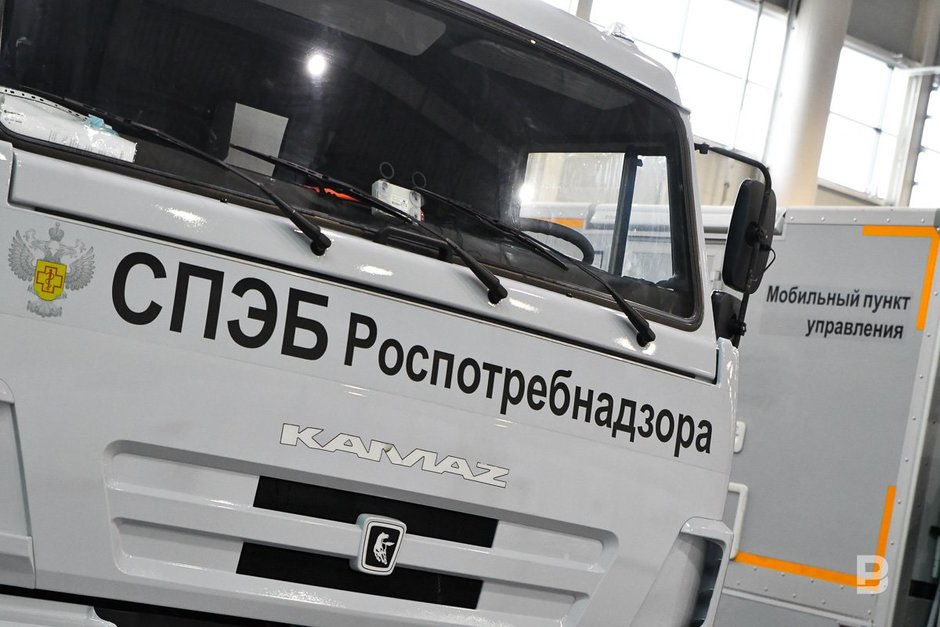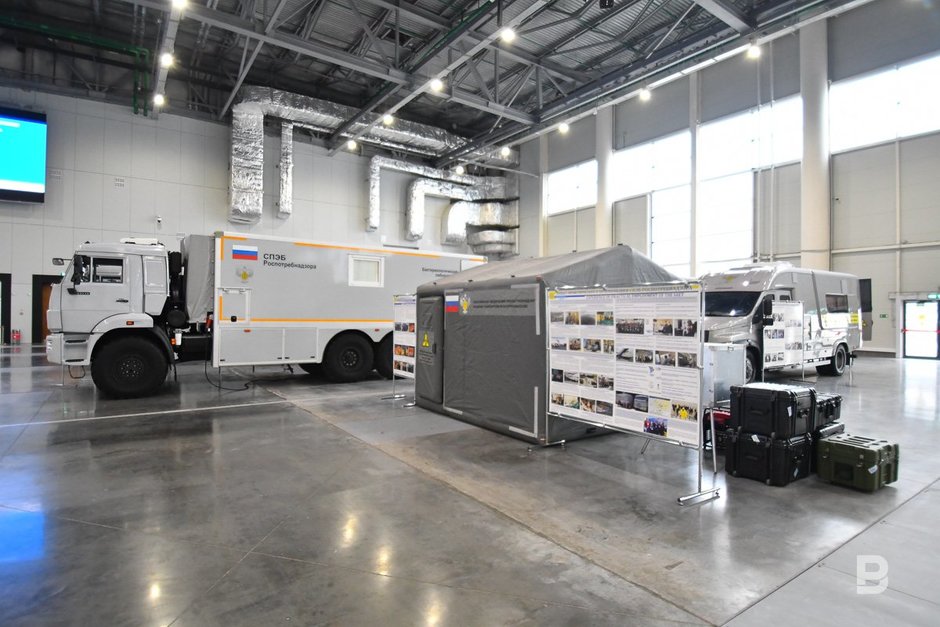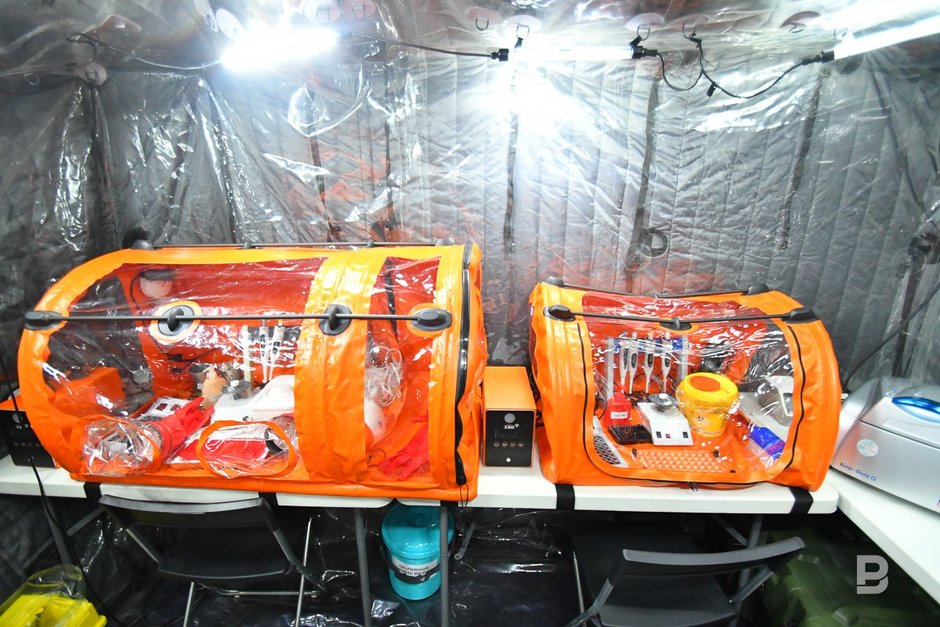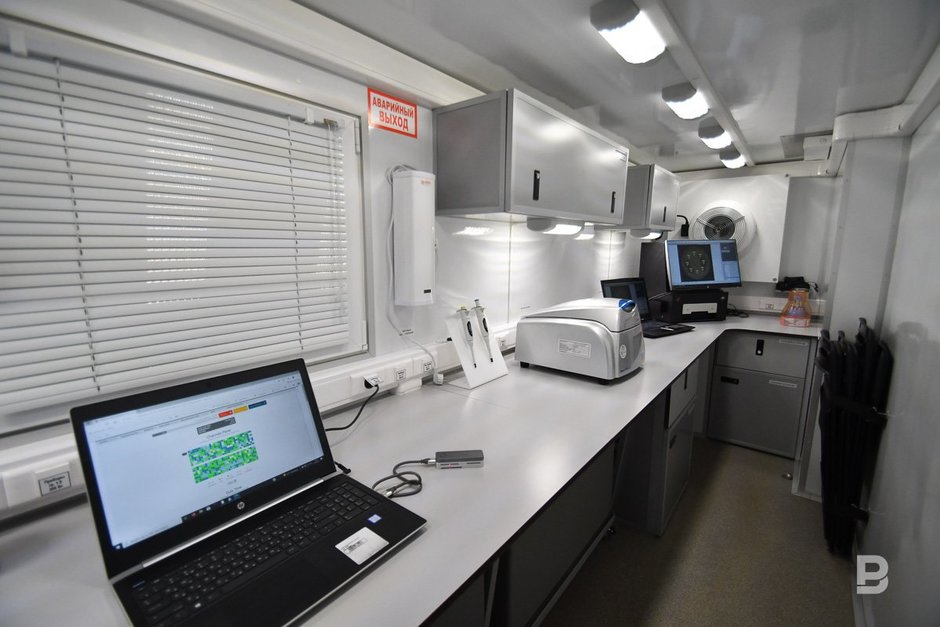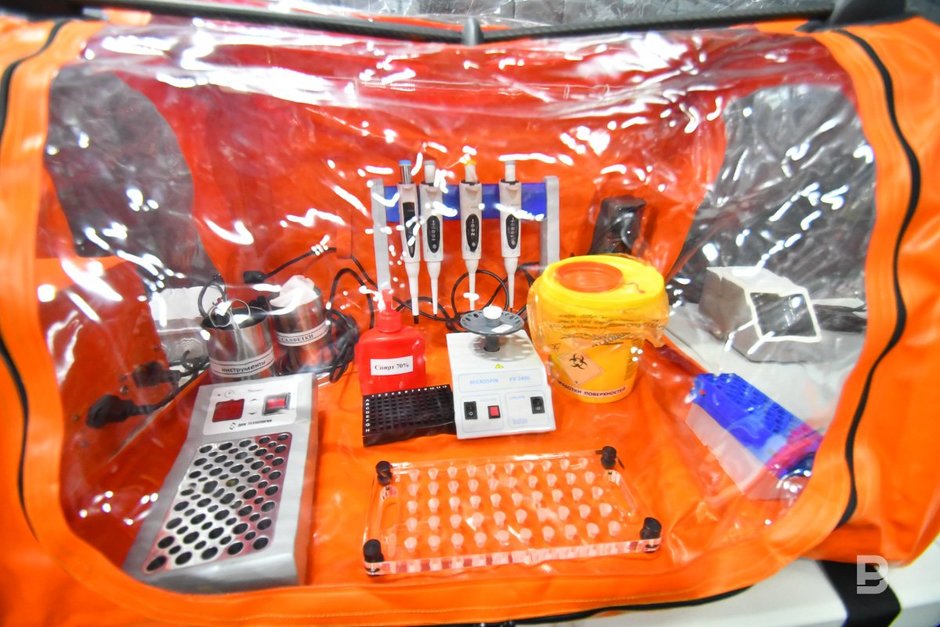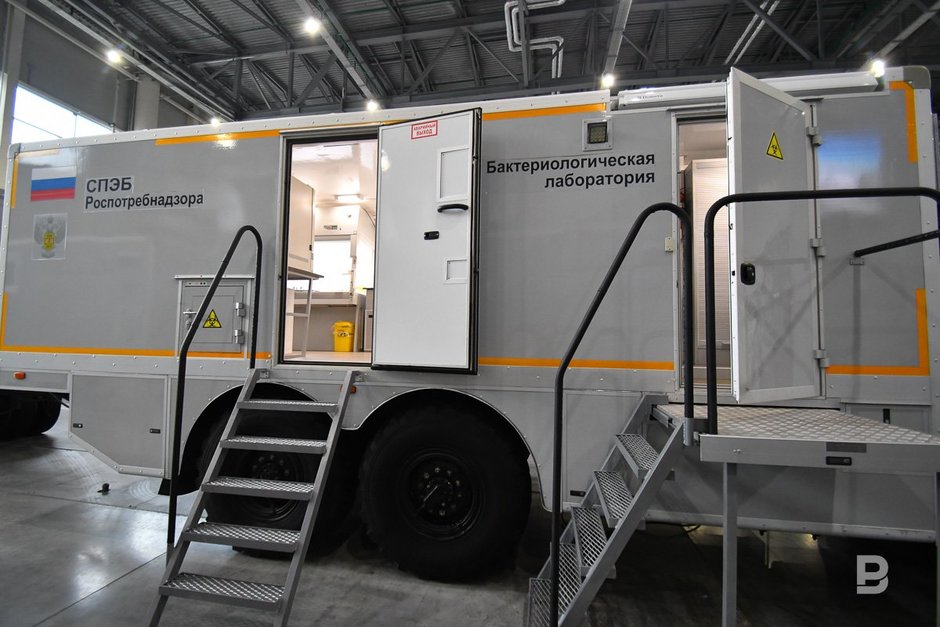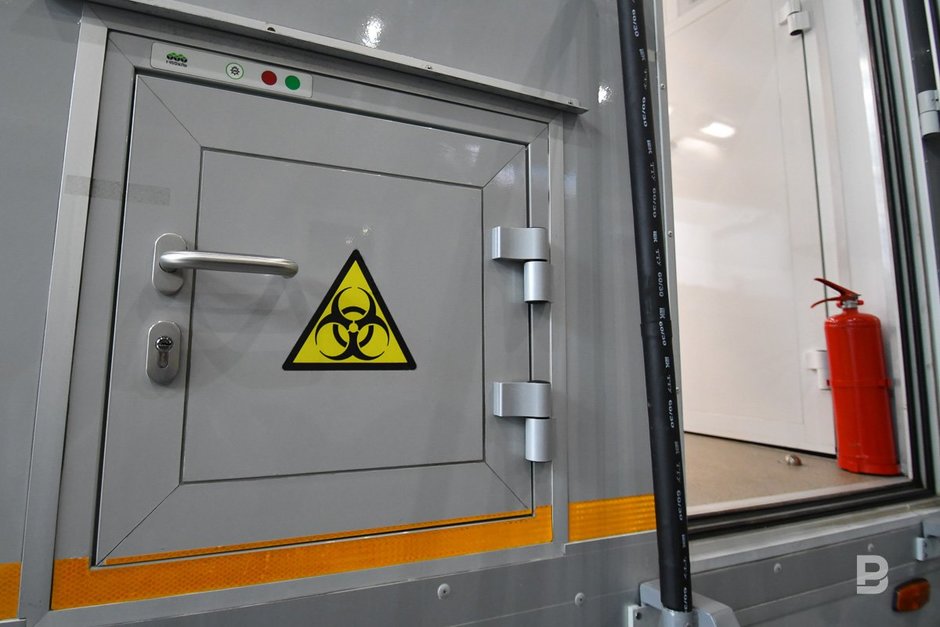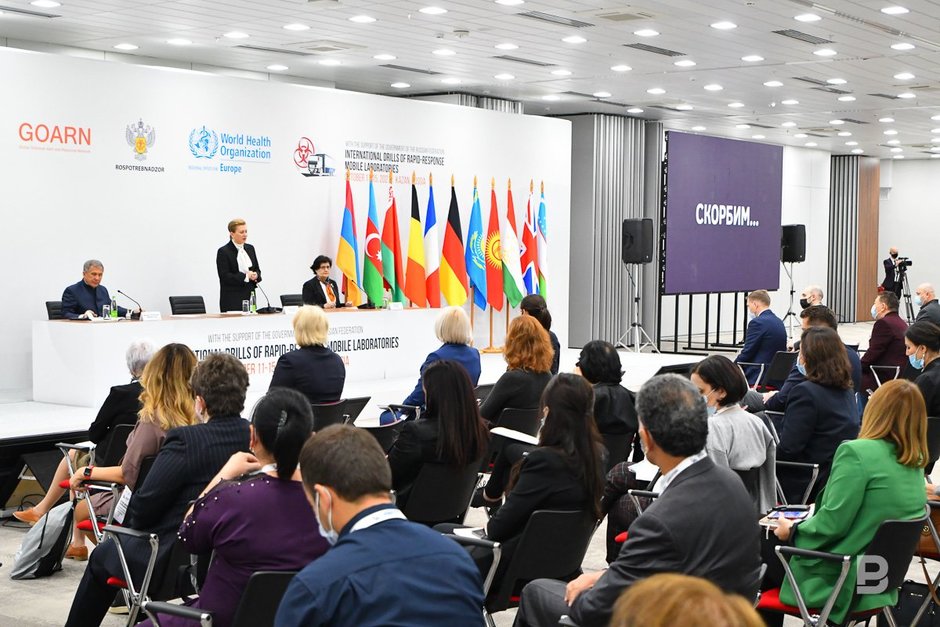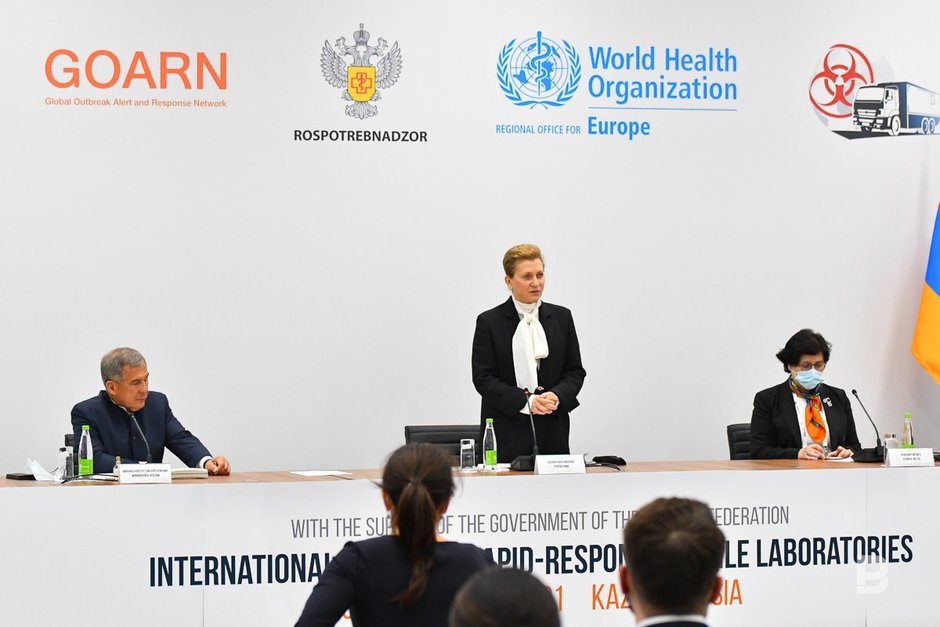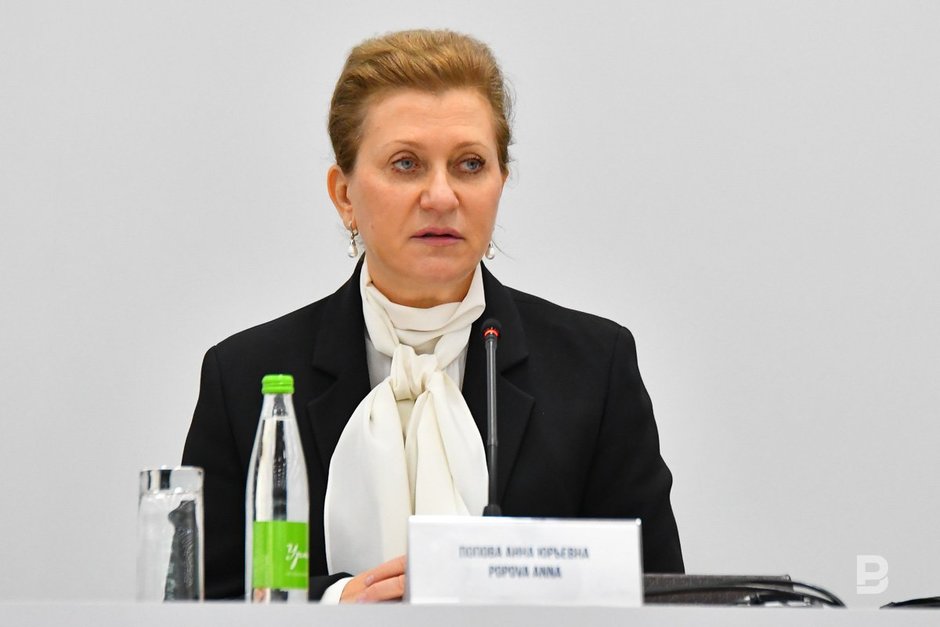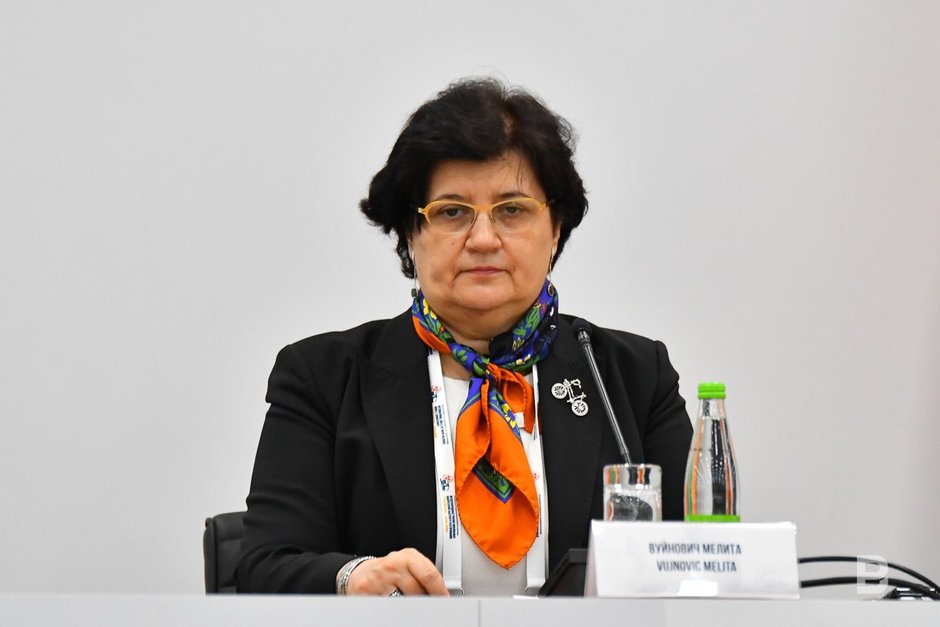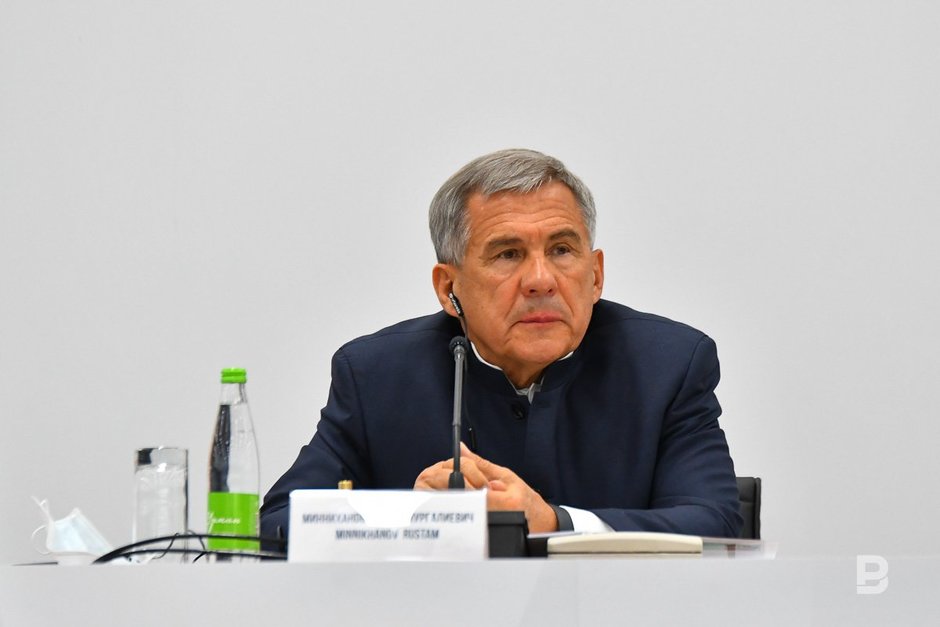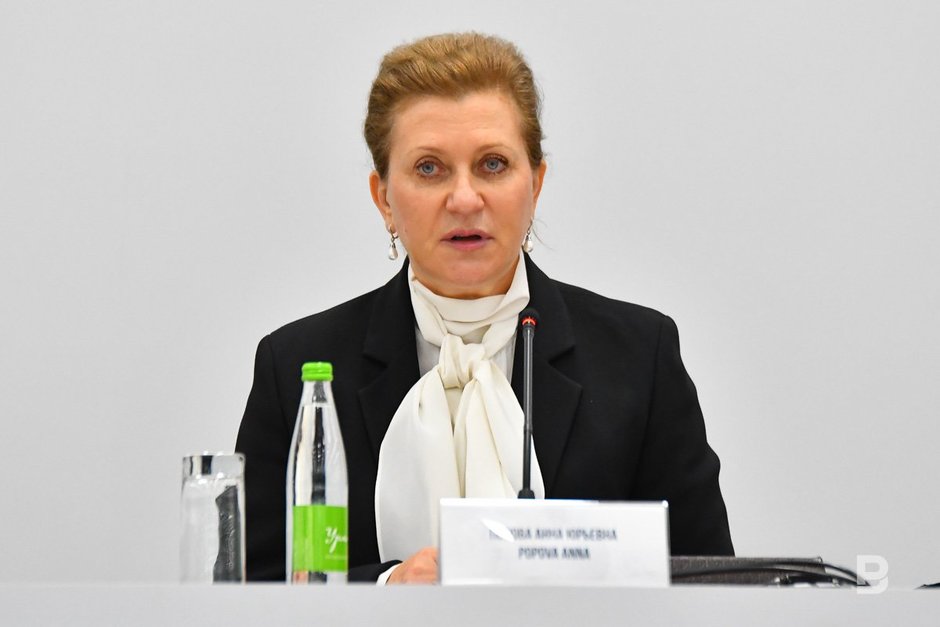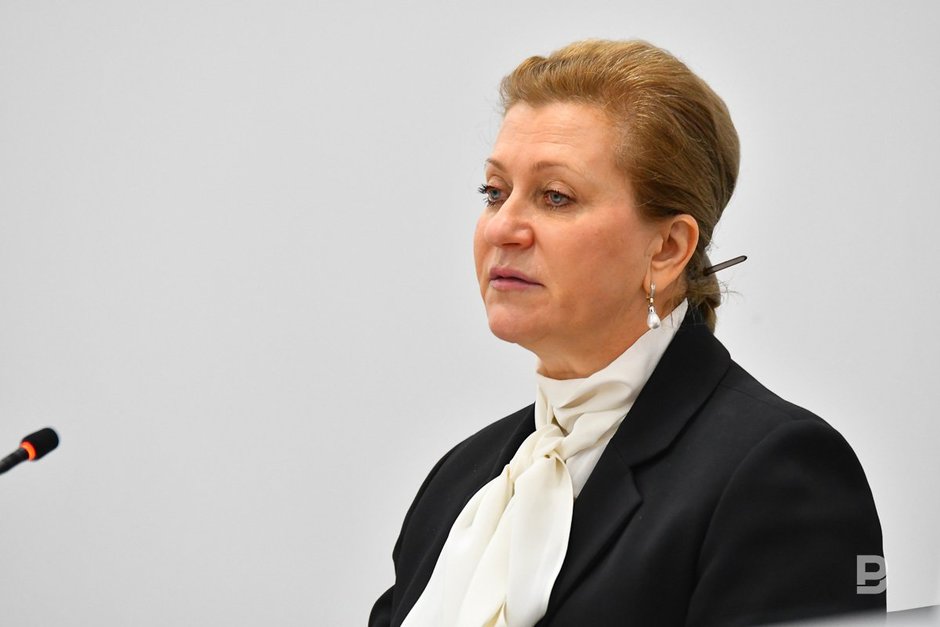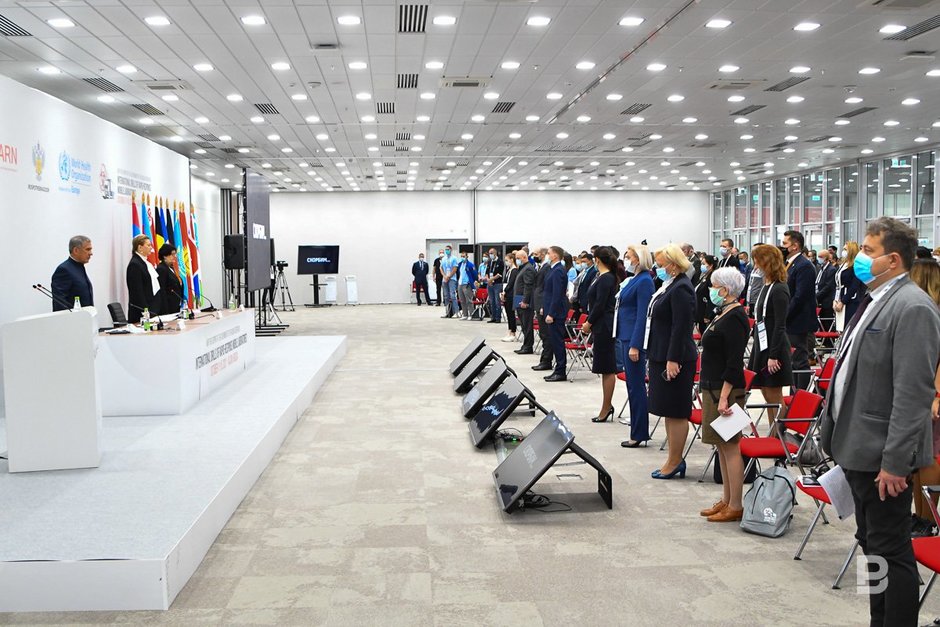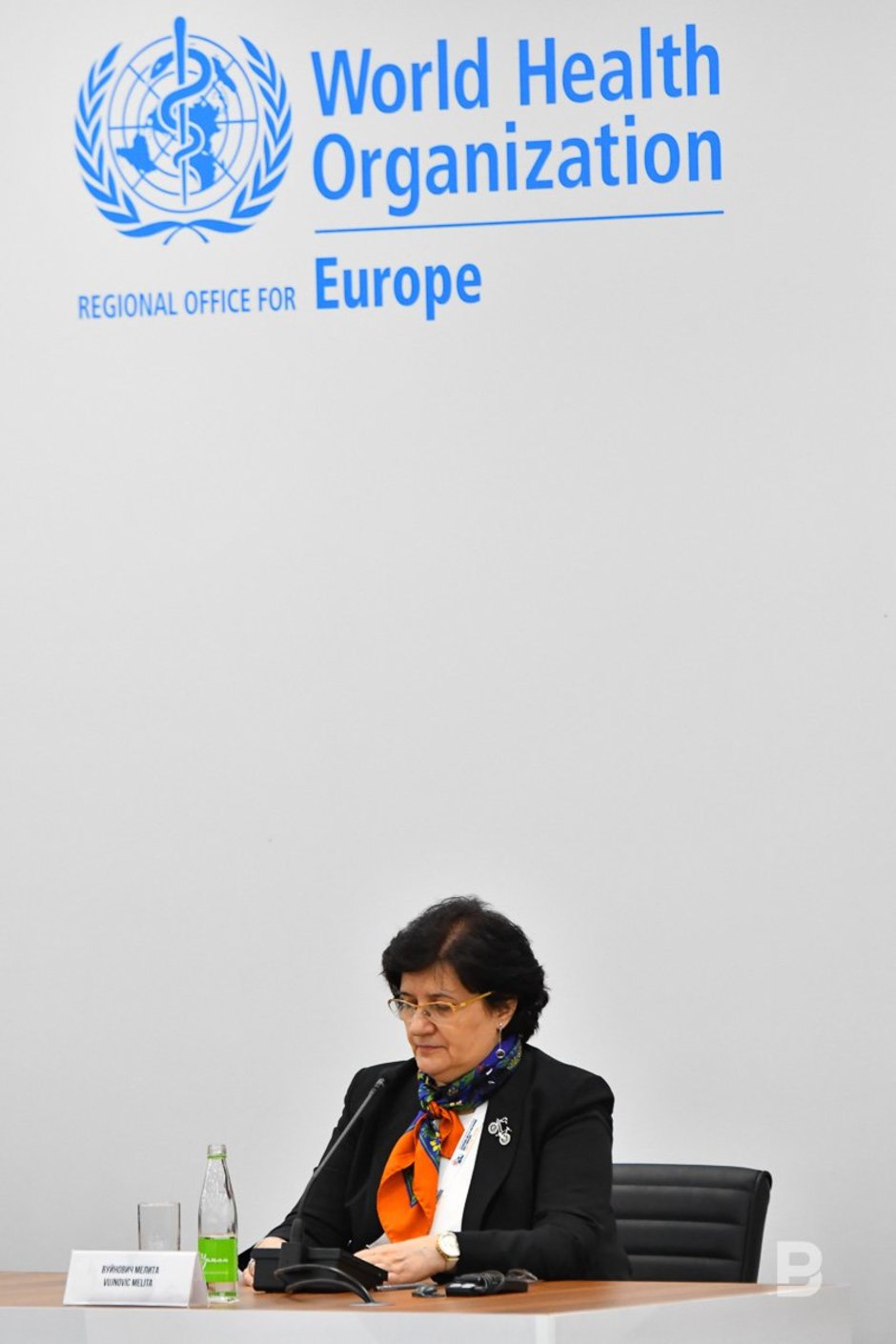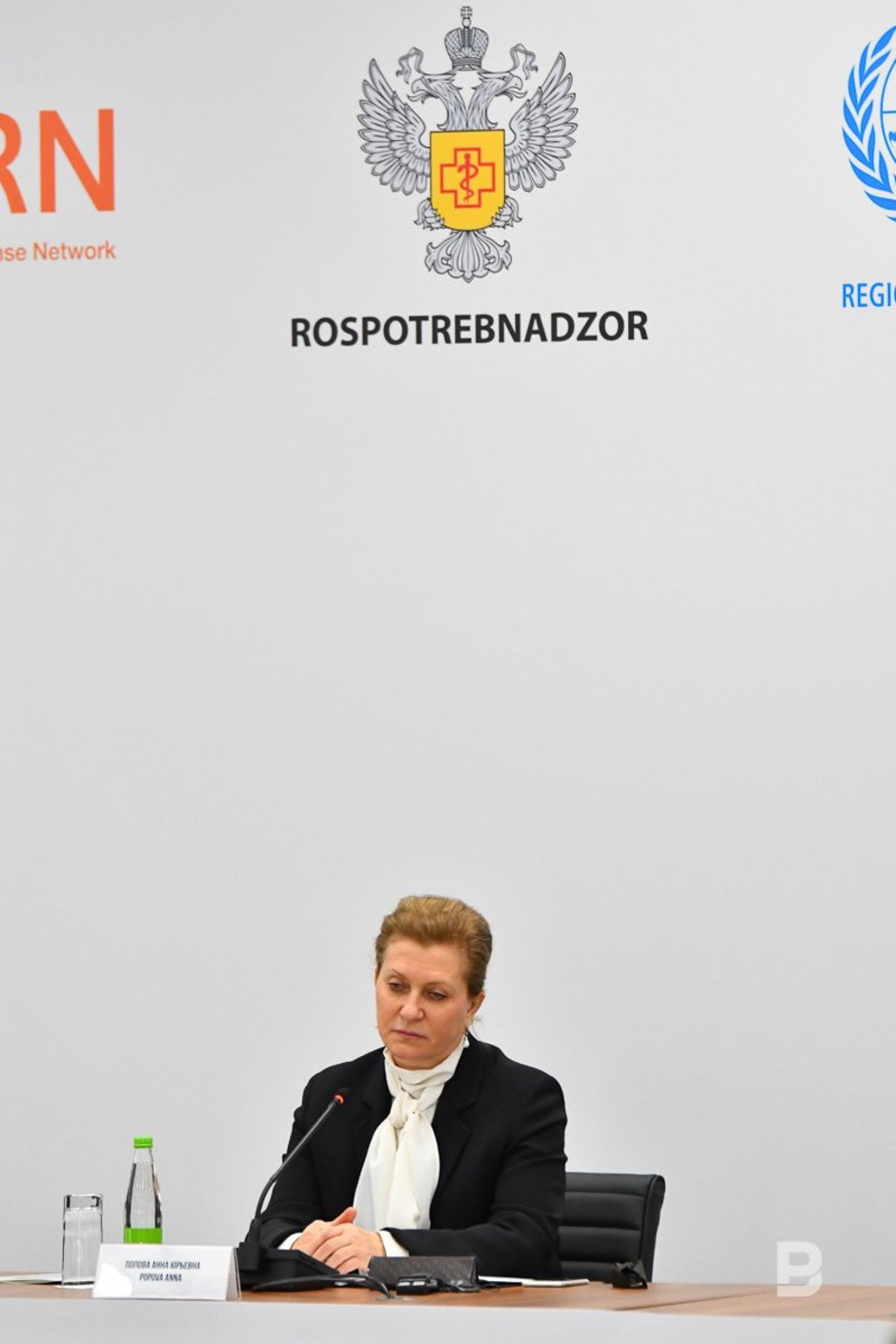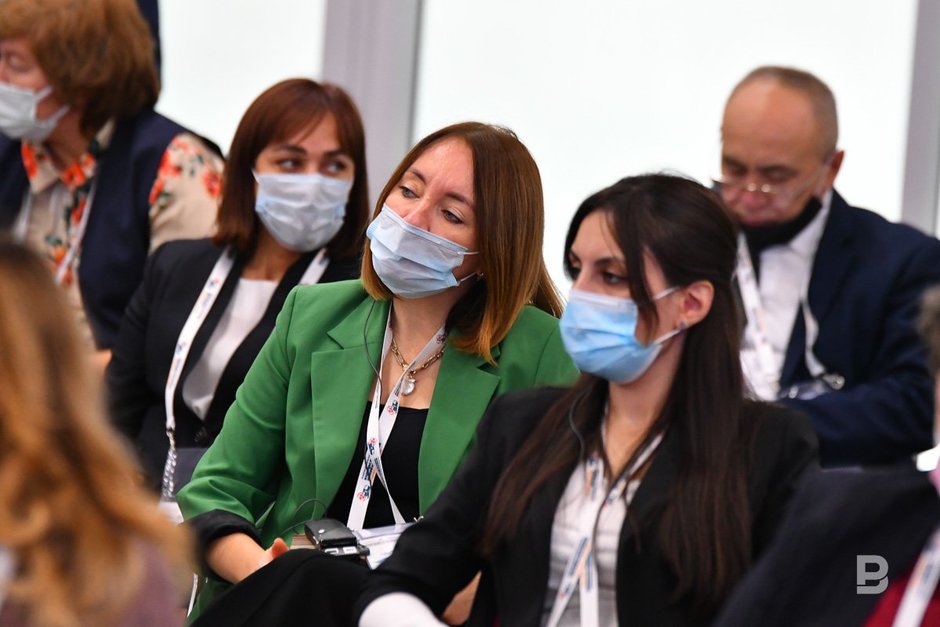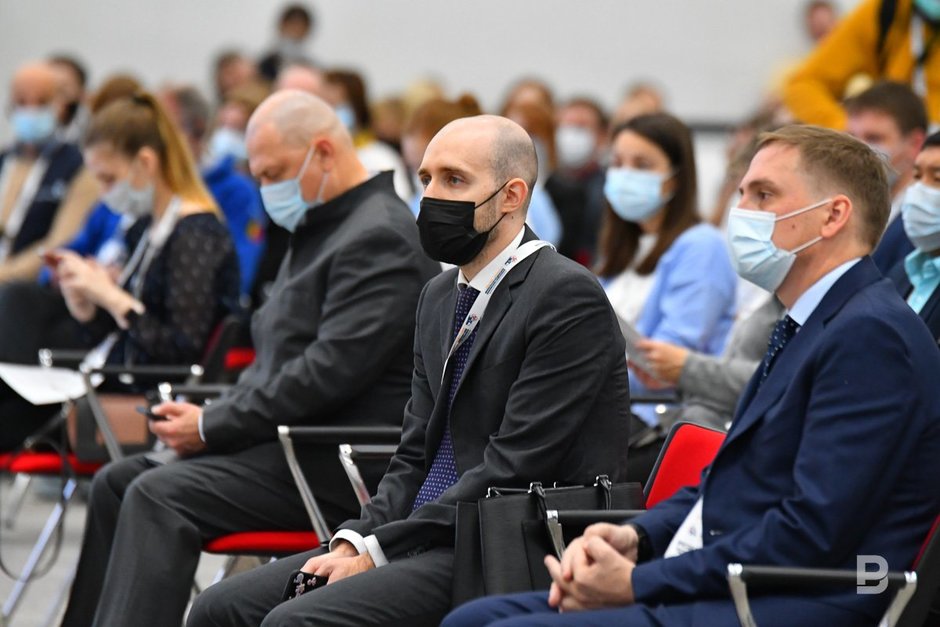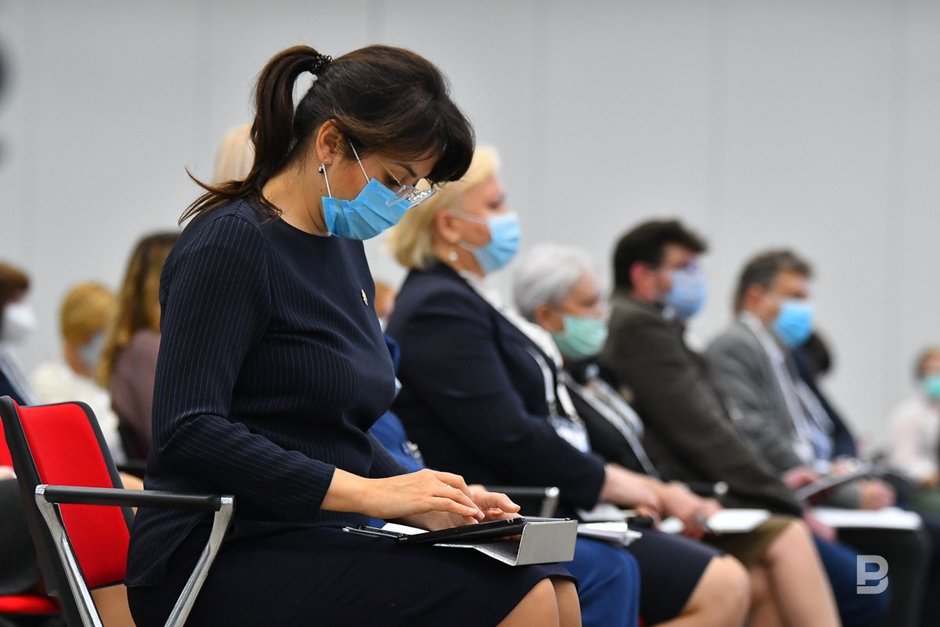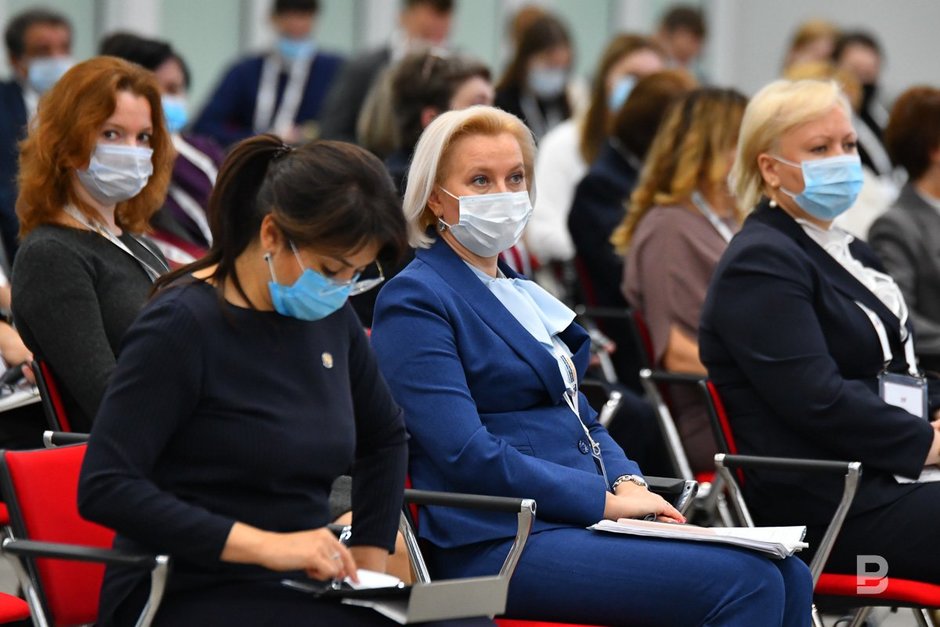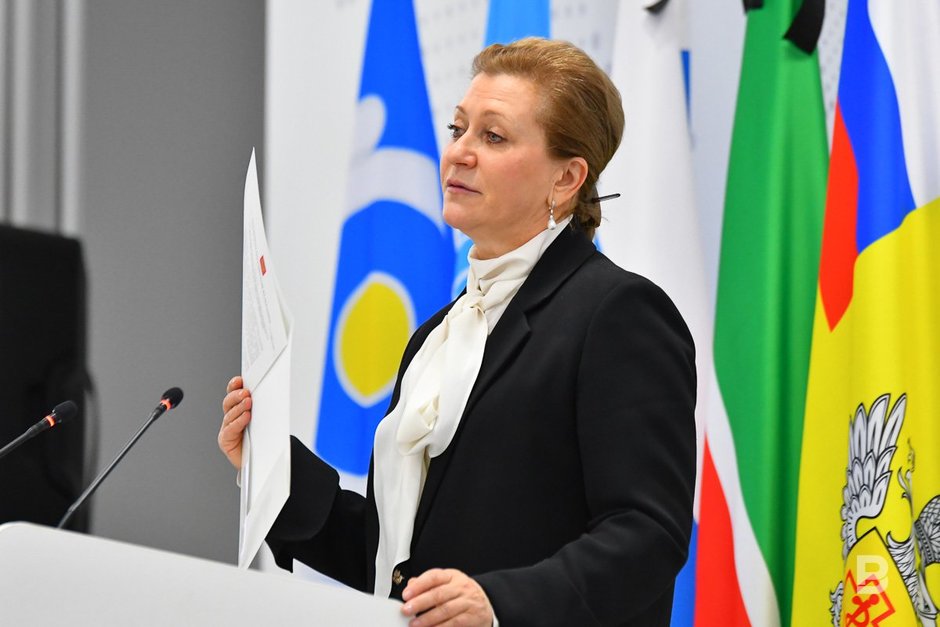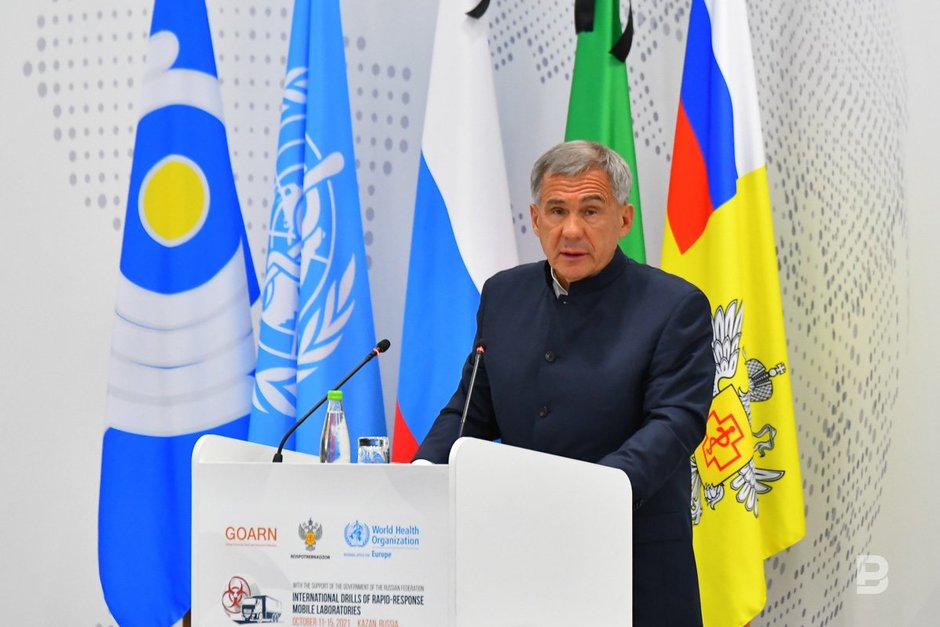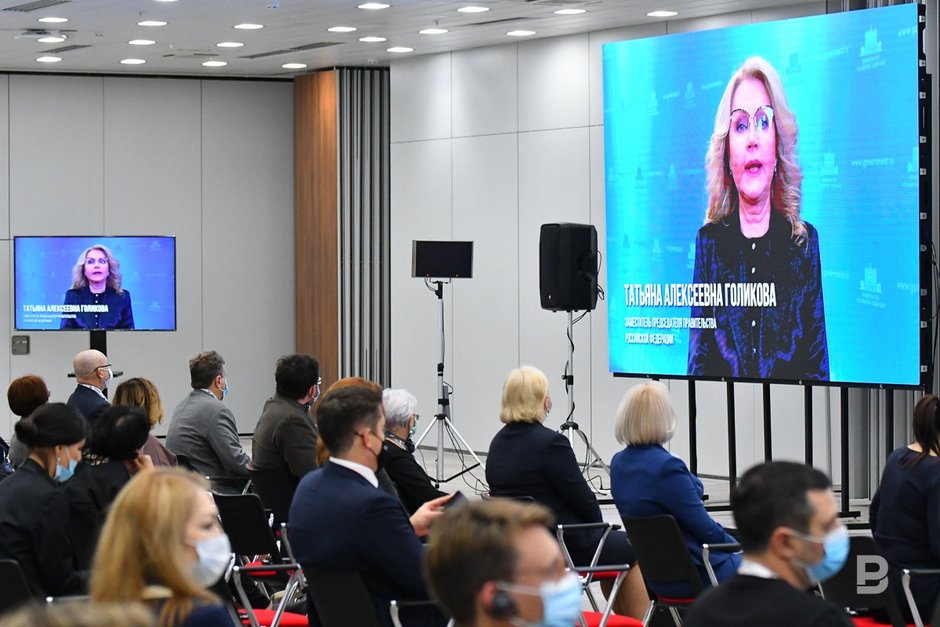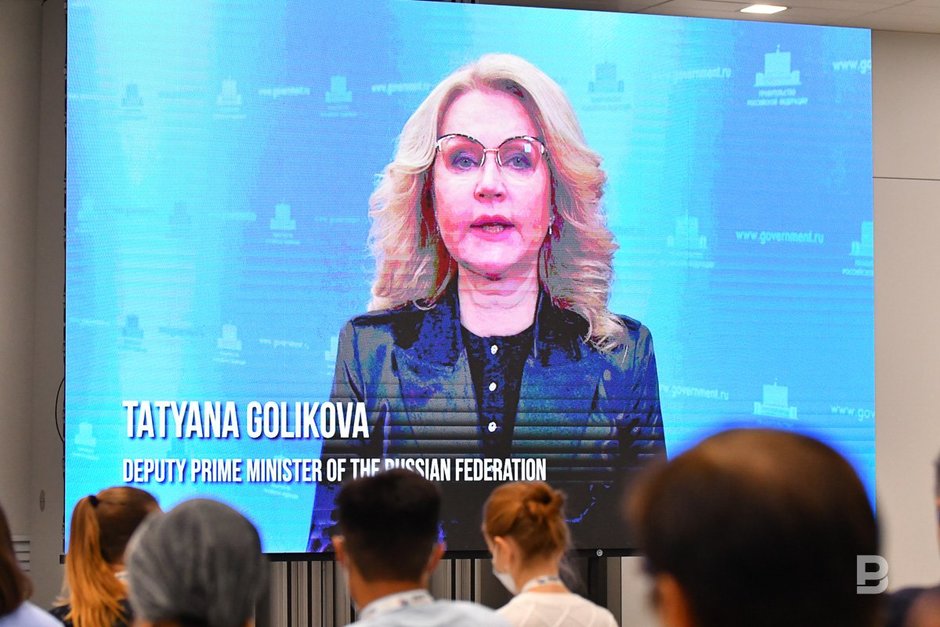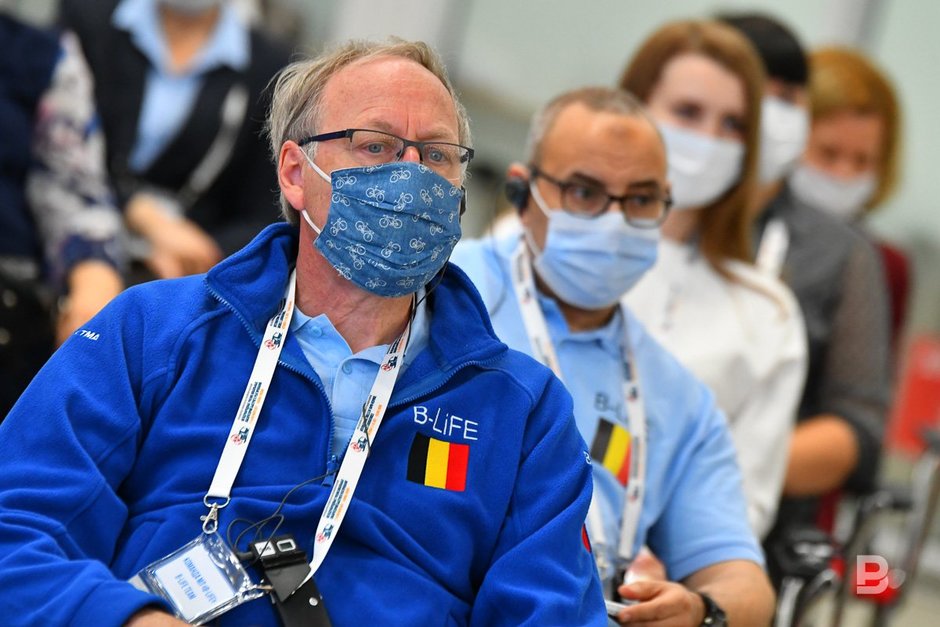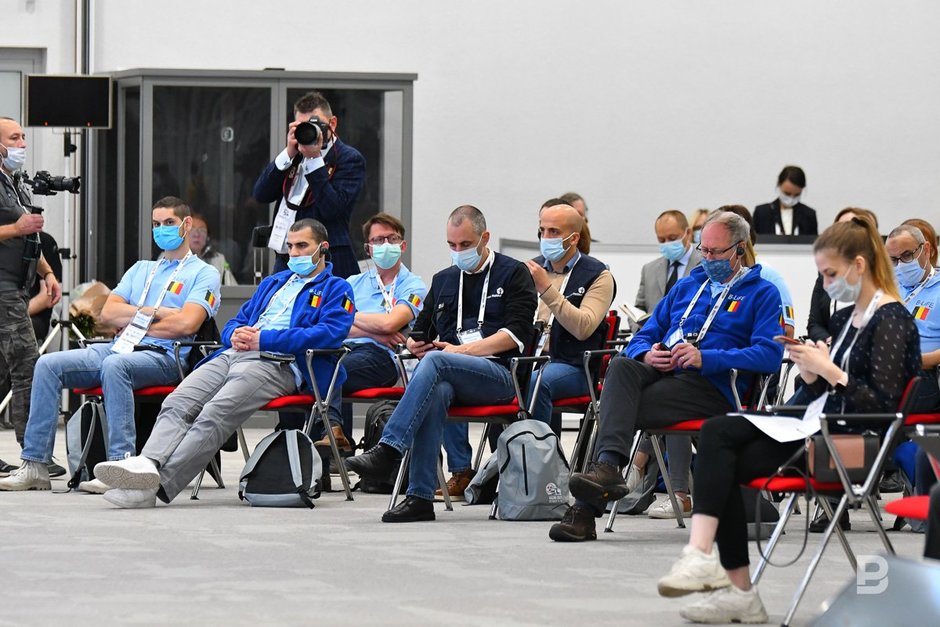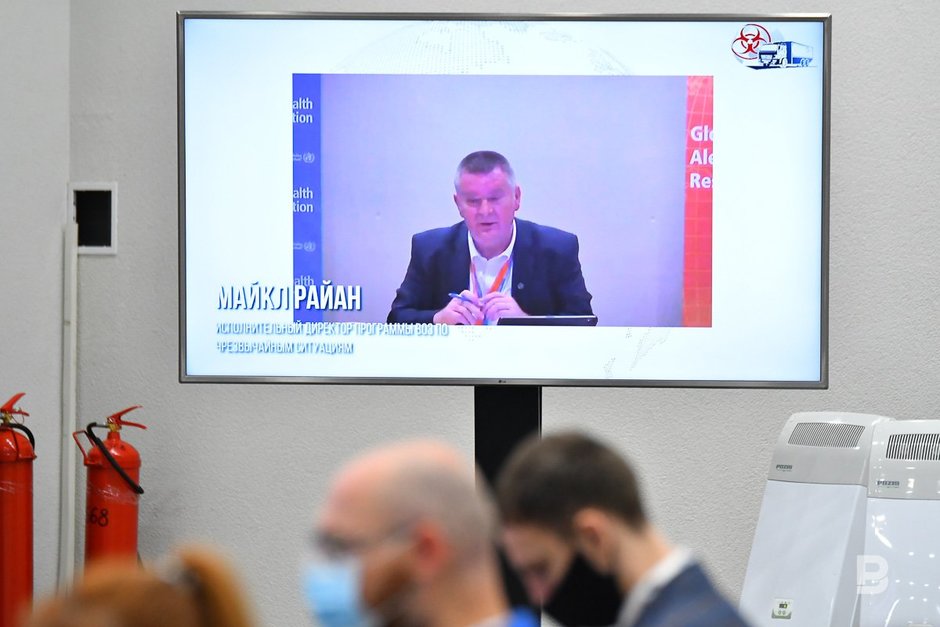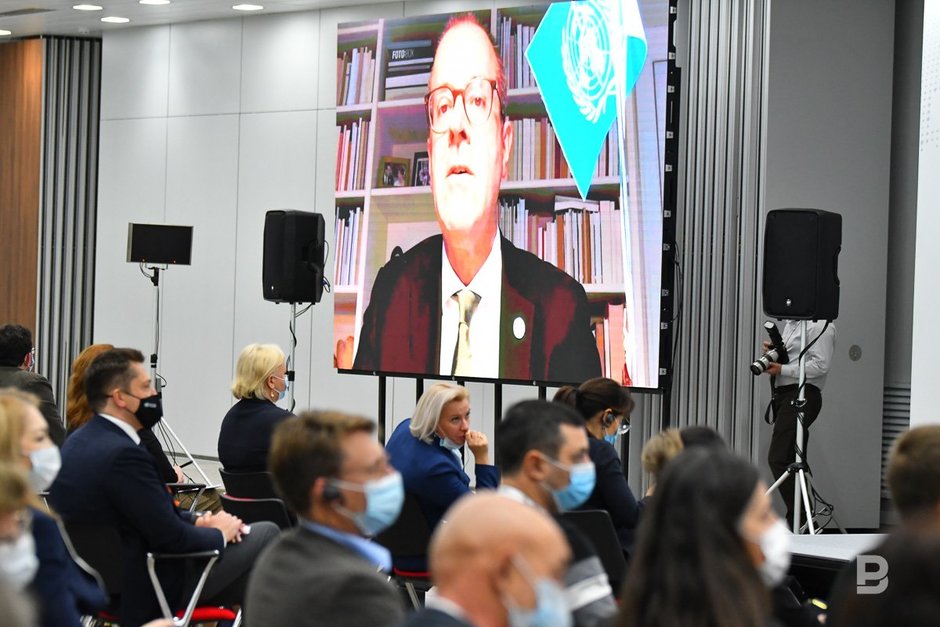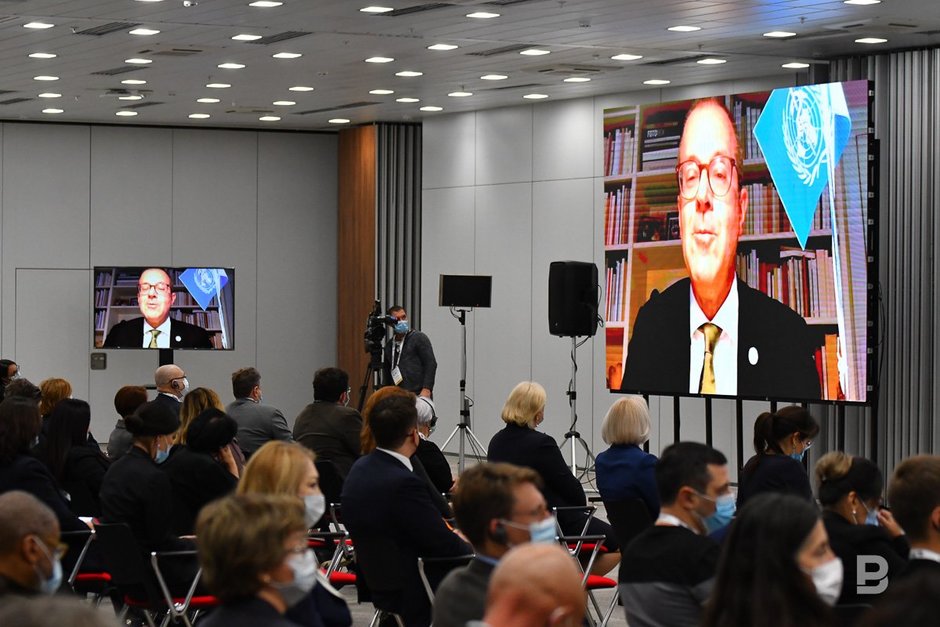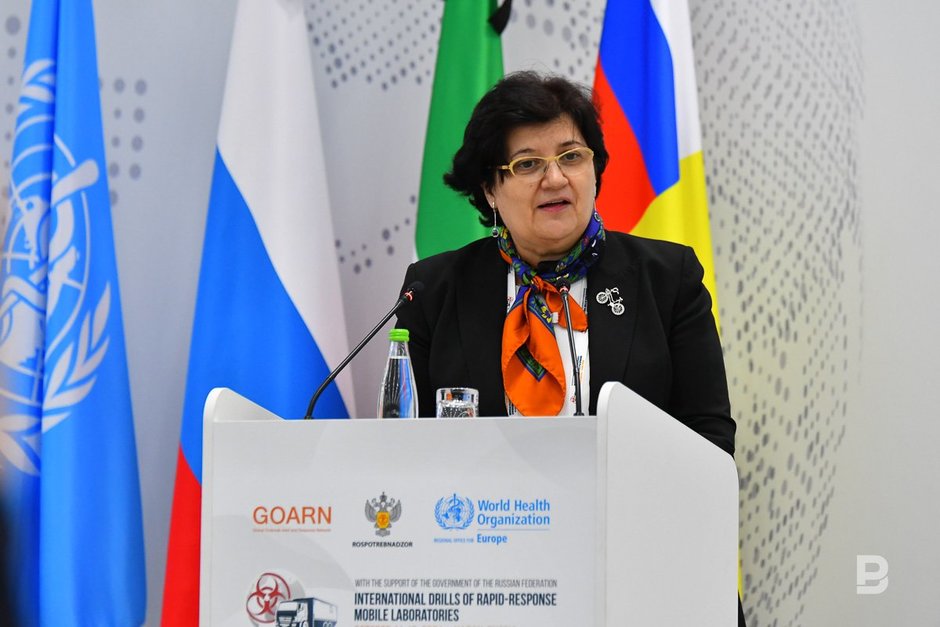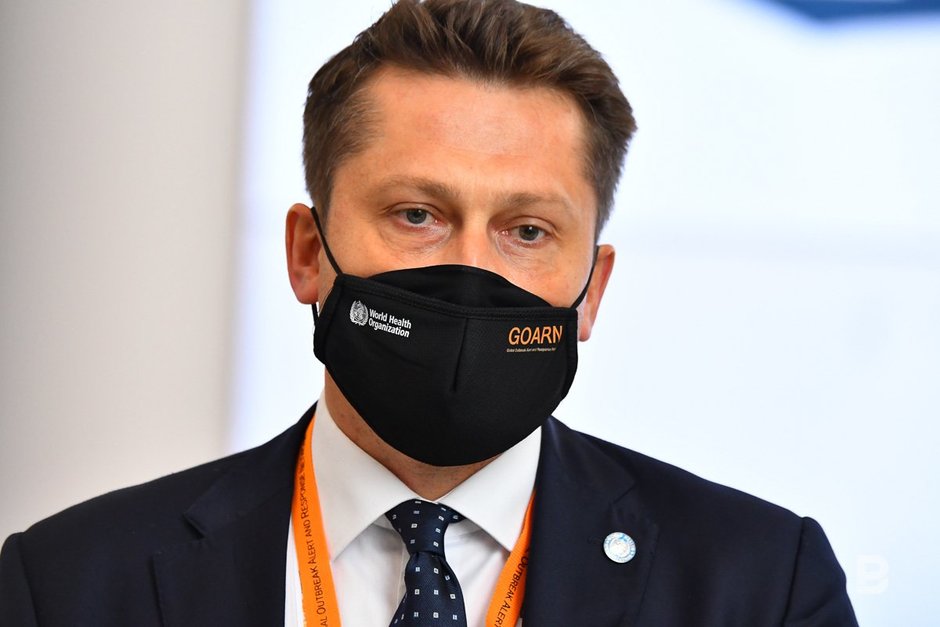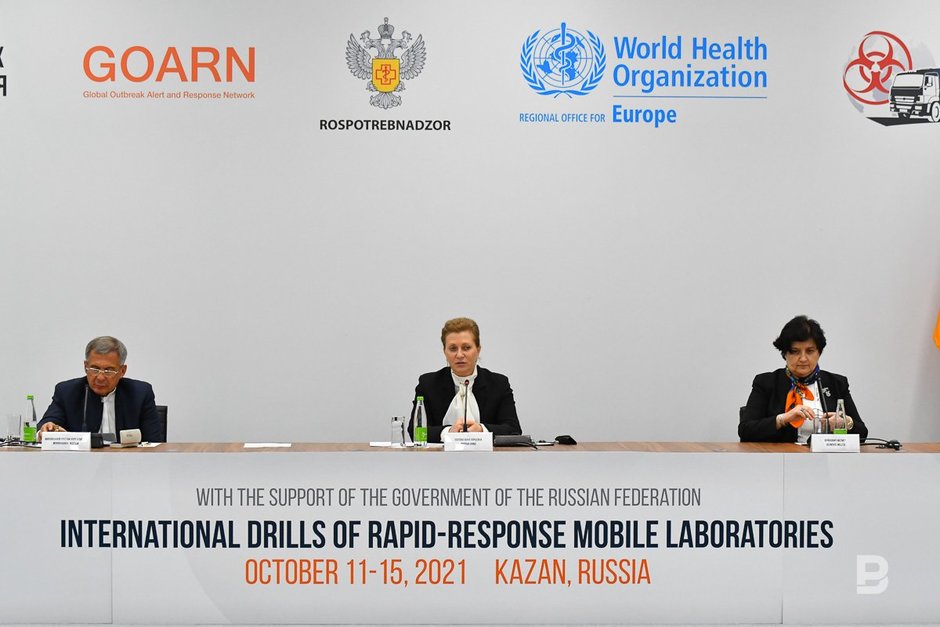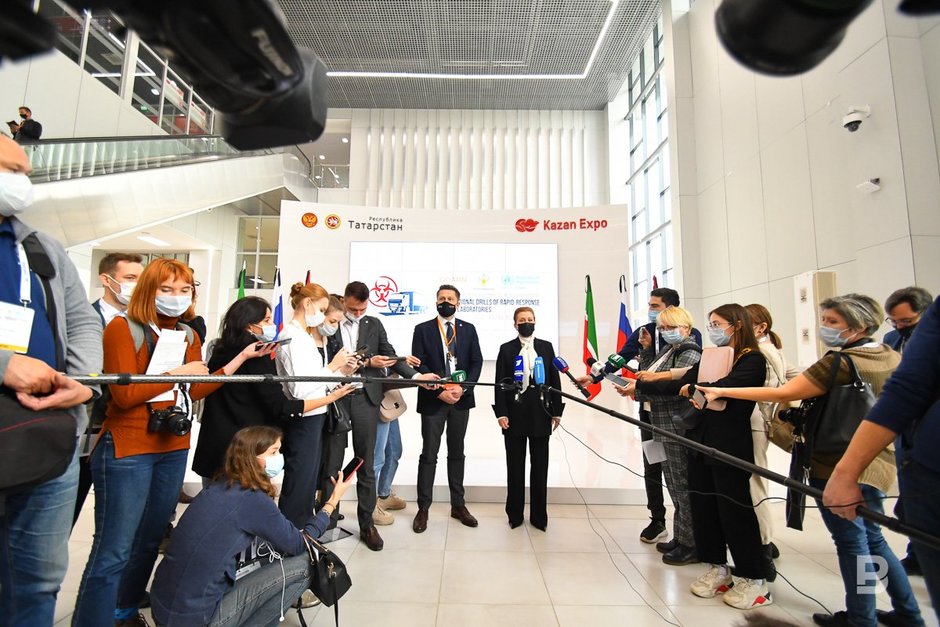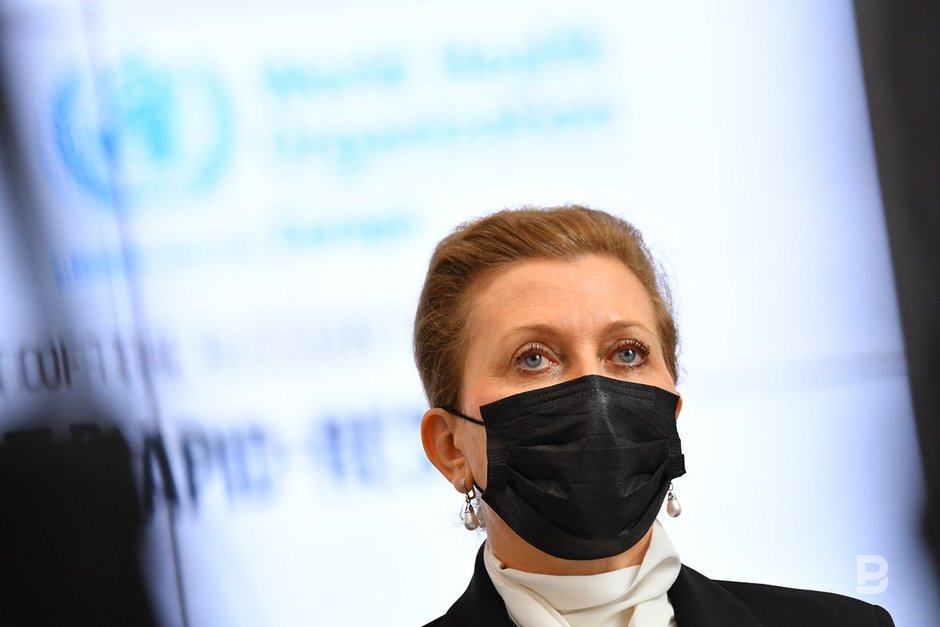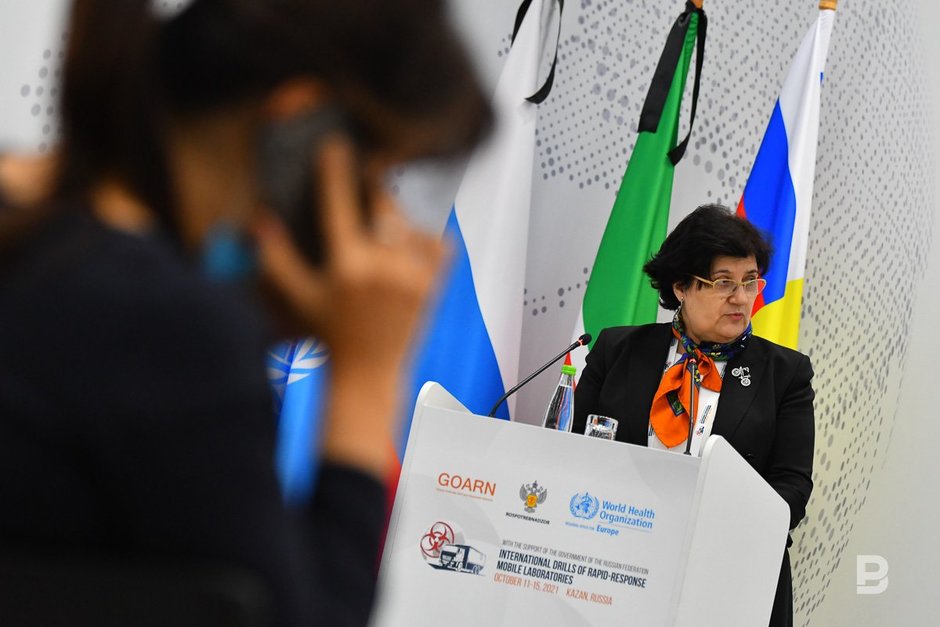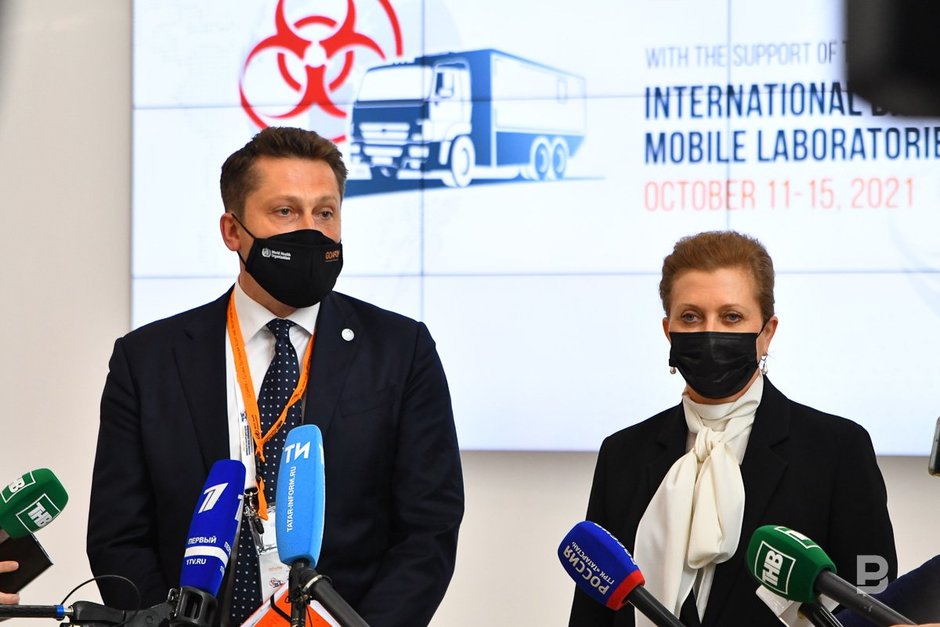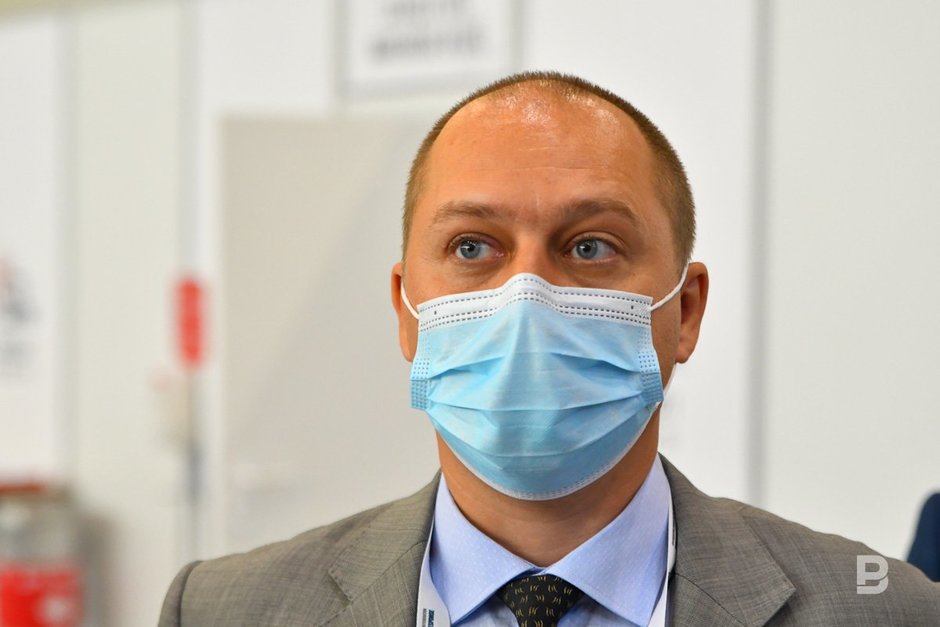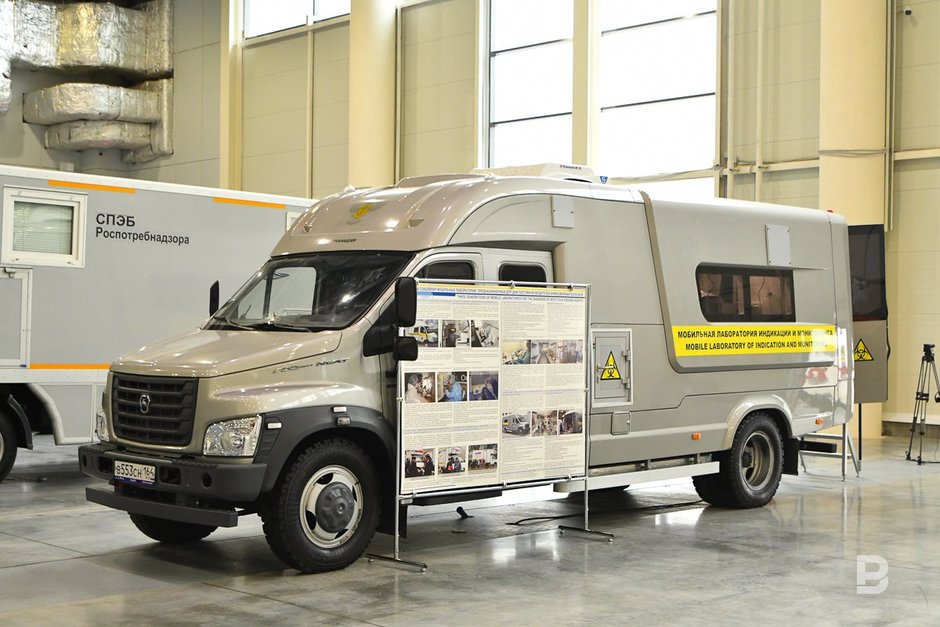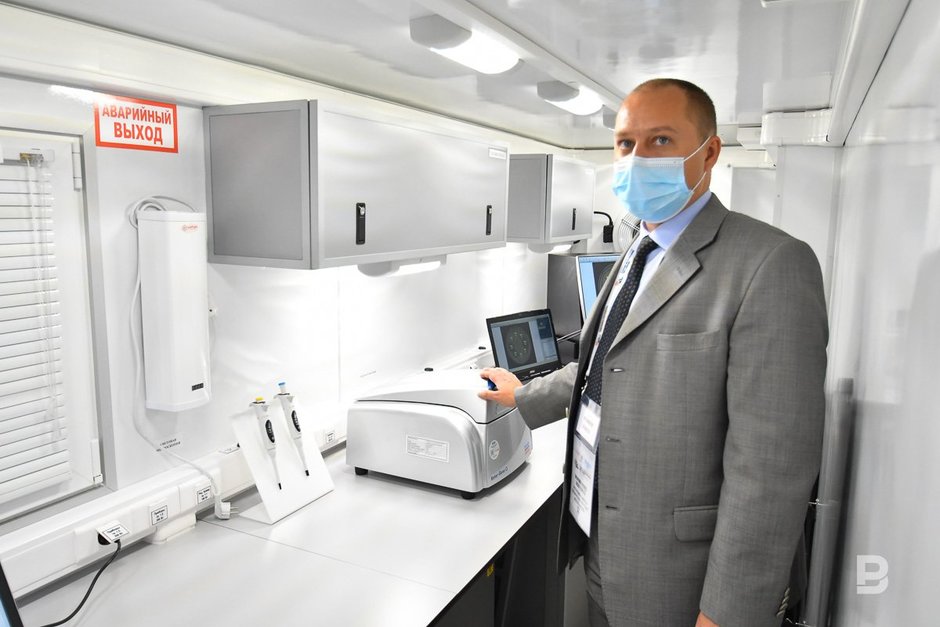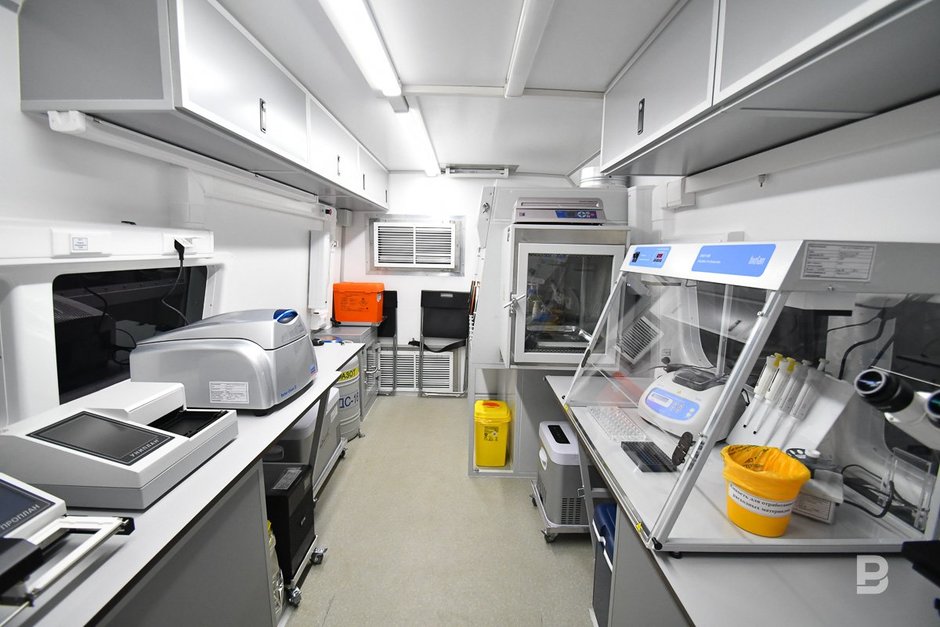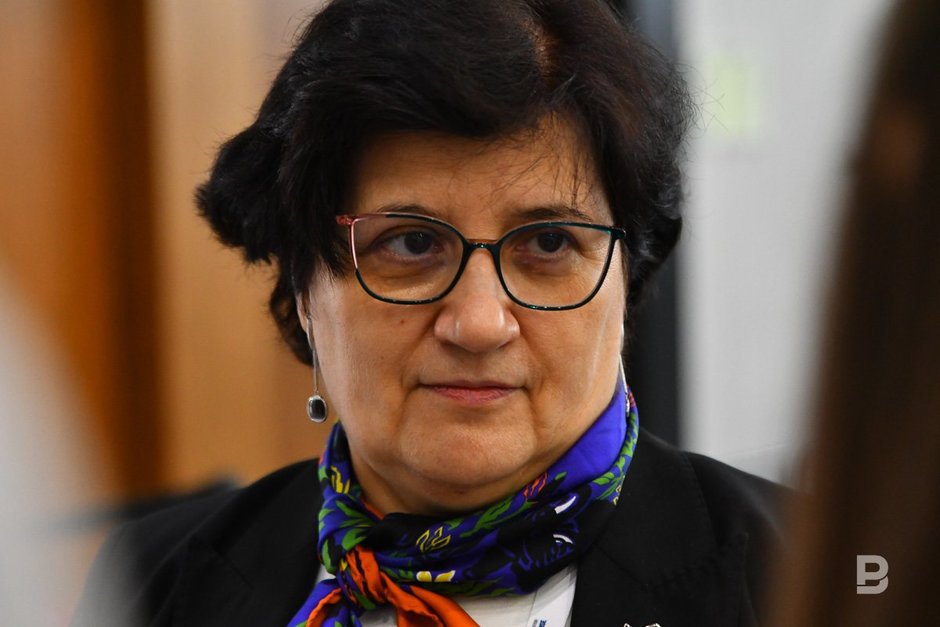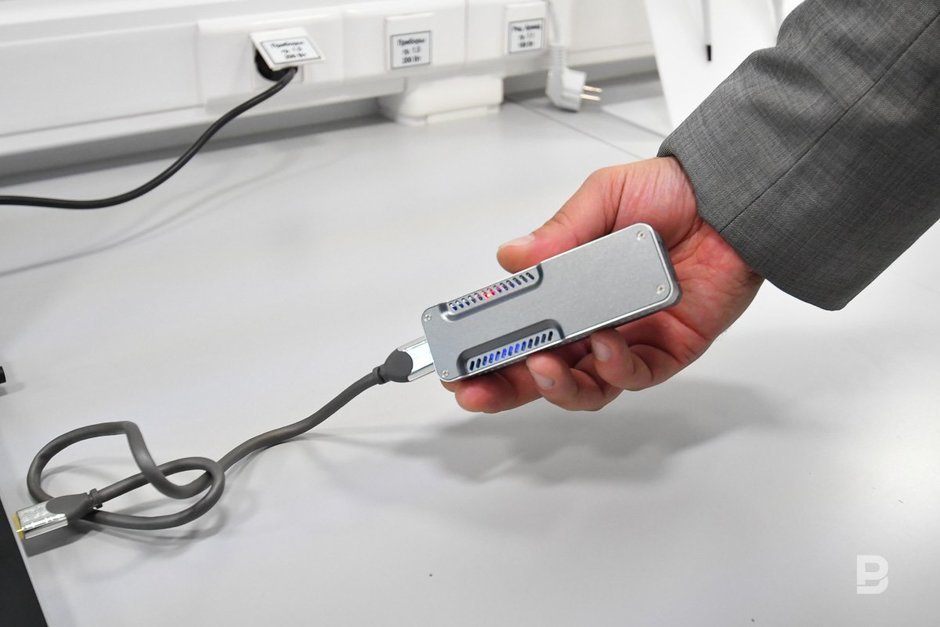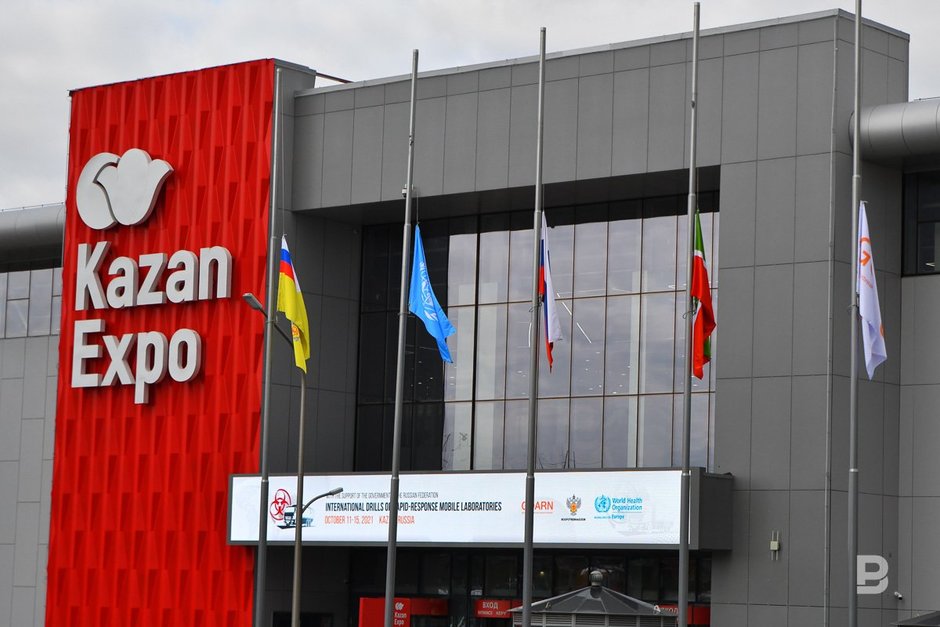WHO specialists to study near Kazan on 'dead' viruses
They are decontaminated in advance and have a safety certificate
From October 11 to 15, international exercises of mobile rapid response laboratories are being held in Kazan for the first time. The exercises simulate an outbreak of an infectious disease in a WHO Member State. More than 120 specialists from 20 countries of the world are taking part in the event. The goal is to work out the mechanism and standards of work in the field, which will then become a benchmark for emergency assistance in case of possible epidemics. The organisers assure that Kazan residents have nothing to fear — all pathogens of dangerous diseases have been sterilised in advance. Read the details of the first day of the exercises in the material of Realnoe Vremya.
Development of a standard for responding to epidemiological threats
On Monday, the first international exercises of mobile rapid response teams to sanitary and epidemiological emergencies using mobile laboratories started on the territory of Kazan Expo. They are conducted by Rospotrebnadzor under the auspices of the World Health Organisation (WHO). The exercises simulate an outbreak of an infectious disease in a WHO Member State. The teams will have to deploy mobile laboratories and identify the causative agent of the infection.
The event is attended by more than 120 specialists from 20 countries, as well as a representative delegation of experts. According to the head of Rospotrebnadzor, Anna Popova, the algorithms developed during the exercises will form the basis of international standards for rapid response to epidemiological threats anywhere in the world. Besides, within five days, the participants of the event will exchange experiences, work out interaction, solve problems in the field of biological safety, laboratory information systems, logistics, and quality assurance of research in the field.
Anna Popova noted that the Russian Federation has extensive experience in using mobile laboratories not only during emergencies, but also mass sports events. Now Rospotrebnadzor mobile laboratories are operating in Guinea, Vietnam, and seven CIS countries. In the world, they began to be actively used during the coronavirus pandemic.
The representative of the WHO headquarters, Oleg Storozhenko, noted that the key point of the exercises is the exchange of unique experience gained not only during outbreaks of infectious diseases, but also in refugee camps, natural disasters, catastrophes caused by the human factor.
“For the first time, we will see how laboratories from different countries work together, how they exchange information, how they deploy their mobile laboratories, how they collect samples. For the first time, we are exchanging information to strengthen scientific potential. First of all, we see mobile labs as an innovative tool. Let's say genome sequencing is a contribution to the concept of a unified healthcare system, when we see that a person and an animal are a single biosystem, and we get some of the most dangerous infections from the living world. Mobile labs also interact with this, and we receive this information. Mobile laboratories are one of the main driving factors in the implementation of international health regulations.”
Why Kazan?
After learning about the upcoming international exercises, not all residents of Kazan reacted calmly to this. Some are developing conspiracy theories about why it was decided to hold them in the capital of Tatarstan. The head of Rospotrebnadzor explained the choice of location — it is largely related to convenient logistics and the ability to deliver by transport aircraft and place huge laboratory complexes based on KAMAZ chassis indoors.
“First, Kazan already has experience working with such laboratories following the results of a significant number of mass international sports events. Second, we are conducting exercises using laboratories on the highway inside the premises, on the territory bordering the airport, and we understand that it is possible to bring and place any laboratories of any format here with the help of heavy-duty aircraft that Kazan airport can receiv," the head of the department explained.
There is no reason to worry about the possible leakage of dangerous pathogens. As Vasily Kuklev, leading researcher at the Russian Anti-plague Research Institute Mikrob, told Realnoe Vremya, this moment was thought out in advance:
“We are responsible for biological safety — there will be no living microorganisms here. The samples that will be used during the exercises will be disinfected by the methods provided for by the current sanitary rules for working with pathogenic biological agents of the 1st-4th pathogenicity groups. There are security certificates for all these sets of encrypted samples.”
“There will be no competition”
The exercises involve the teams of Russia, Germany and the combined team of France — Belgium. On the day of the launch, they will deploy and demonstrate the capacities of their mobile laboratories, on the second day of the laboratory — based exercises, they will have to identify encrypted pathogens, on the third — evacuation of a suspicious patient in an isolation stretcher with autonomous air supply and work with biologically dangerous agents.
As Kuklev explained to our publication, there will be no competition at the exercises, and neither the jury nor the scoring are provided.
“We do not determine who is better, who is worse here. The purpose of these exercises is to test the minimum standards for mobile laboratories, which during this year were developed by a large team of employees from Russia, WHO and a number of European countries. That is, there are standards now, we need to try how well they will work in practice. Accordingly, if we find out that some adjustments are needed, they will be made.”
The scientist explained that the instrument base of Russian and foreign laboratories coincides by 80-90 percent, that is, Russian laboratories are not inferior to foreign ones in terms of equipment. Moreover, Rospotrebnadzor has brought its innovative development to Kazan — pneumo-framed module. It has been developed this year and its peculiarity is that no special transport is needed to transport this laboratory. It is packed in 23 suitcases, which can be carried by civil flights in the form of luggage.
Especially for journalists, Russian equipment was placed in the hall where the exercises are taking place. These are mobile SPEB complexes consisting of KAMAZ trucks with trailers, inside which laboratory modules, pneumo-framed mobile laboratory and mobile indication laboratory based on GAZon car are located.
